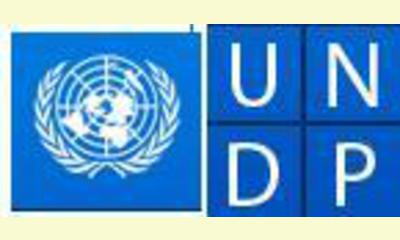|
|
Human Development Report 2013 - The Rise of the South
un article par Helen Clark, Administrator, United Nations Development Program (abridged)
The 2013 Human Development Report, The Rise of the
South: Human Progress in a Diverse World, looks at
the evolving geopolitics of our times, examining
emerging issues and trends and also the new actors
which are shaping the development landscape. . .

The Report notes that, over the last decade, all
countries accelerated their achievements in the
education, health, and income dimensions as
measured in the Human Development Index (HDI)—to
the extent that no country for which data was
available had a lower HDI value in 2012 than in
2000. As faster progress was recorded in lower HDI
countries during this period, there was notable
convergence in HDI values globally, although
progress was uneven within and between regions.
Looking specifically at countries which lifted
their HDI value substantially between 1990 and
2012 on both the income and non-income dimensions
of human development, the Report examines the
strategies which enabled them to perform well. In
this respect, the 2013 Report makes a significant
contribution to development thinking by describing
specific drivers of development transformation and
by suggesting future policy priorities that could
help sustain such momentum.
By 2020, according to projections developed for
this Report, the combined economic output of three
leading developing countries alone—Brazil, China
and India—will surpass the aggregate production of
Canada, France, Germany, Italy, the United Kingdom
and the United States. Much of this expansion is
being driven by new trade and technology
partnerships within the South itself, as this
Report also shows.
A key message contained in this and previous Human
Development Reports, however, is that economic
growth alone does not automatically translate into
human development progress. Pro-poor policies and
significant investments in people’s capabilities—
through a focus on education, nutrition and
health, and employment skills—can expand access to
decent work and provide for sustained progress.
The 2013 Report identifies four specific areas of
focus for sustaining development momentum:
enhancing equity, including on the gender
dimension; enabling greater voice and
participation of citizens, including youth;
confronting environmental pressures; and managing
demographic change. . .
To harness the wealth of knowledge, expertise, and
development thinking in the South, the Report
calls for new institutions which can facilitate
regional integration and South–South cooperation.
Emerging powers in the developing world are
already sources of innovative social and economic
policies and are major trade, investment, and
increasingly development cooperation partners for
other developing countries. . .
Finally, the Report also calls for a critical look
at global governance institutions to promote a
fairer, more equal world. It points to outdated
structures, which do not reflect the new economic
and geopolitical reality described, and considers
options for a new era of partnership. It also
calls for greater transparency and accountability,
and highlights the role of global civil society in
advocating for this and for greater decision-
making power for those most directly affected by
global challenges, who are often the poorest and
most vulnerable people in our world. . .
(Click here for a Spanish version of this article or here for a French version)
|








|
DISCUSSION
Question(s) liée(s) à cet article:
How can we get to a sustainable, peaceful economy?,
* * * * *
Commentaire le plus récent:
Annie Leonard: How to Be More than a Mindful Consumer
The way we make and use stuff is harming the world—and ourselves. To create a system that works, we can't just use our purchasing power. We must turn it into citizen power.
by Annie Leonard
posted Aug 22, 2013
Stuff activist Annie Leonard: “Consumerism, even when it tries to embrace ‘sustainable’ products, is a set of values that teaches us to define ourselves, communicate our identity, and seek meaning through accumulation of stuff, rather than through our values and activities and our community.” YES! photo by Lane Hartwell.
Since I released "The Story of Stuff" six years ago, the most frequent snarky remark I get from people trying to take me down a notch is about my own stuff: Don't you drive a car? What about your computer and your cellphone? What about your books? (To the last one, I answer that the book was printed on paper made from trash, not trees, but that doesn't stop them from smiling smugly at having exposed me as a materialistic hypocrite. Gotcha!)
Let me say it clearly: I'm neither for nor against stuff. I like stuff if it's well-made, honestly marketed, used for a long time, and at the end of its life recycled in a way that doesn't trash the planet, poison people, or exploit workers. Our stuff should not be artifacts of indulgence and disposability, like toys that are forgotten 15 minutes after the wrapping comes off, but things that are both practical and meaningful. British philosopher William Morris said it best: "Have nothing in your house that you do not know to be useful or believe to be beautiful."
Too many T-shirts
The life cycle of a simple cotton T-shirt—worldwide, 4 billion are made, sold, and discarded each year—knits together a chain of seemingly intractable problems, from the elusive definition of sustainable agriculture to the greed and classism of fashion marketing.
The story of a T-shirt not only gives us insight into the complexity of our relationship with even the simplest stuff; it also demonstrates why consumer activism—boycotting or avoiding products that don’t meet our personal standards for sustainability and fairness—will never be enough to bring about real and lasting change. Like a vast Venn diagram covering the entire planet, the environmental and social impacts of cheap T-shirts overlap and intersect on many layers, making it impossible to fix one without addressing the others.
I confess that my T-shirt drawer is so full it's hard to close. . ... continuation.

|
|









